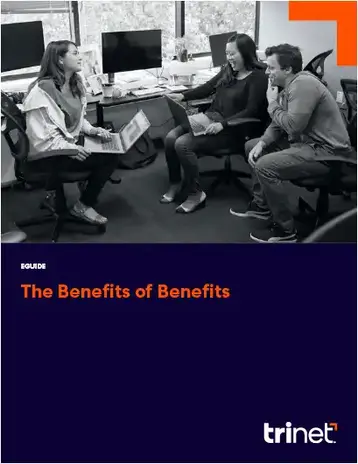
Some organizations offer employees a flexible spending account benefit. An FSA is a program whereby people put pre-tax money into an account to pay for out-of-pocket health care costs. FSA-approved expenses include things like medical deductibles, co-payments, prescriptions and medical devices. Employers may offer a health care FSA, dependent care FSA, or both. Details pertaining to FSA rollover, renewal and other aspects vary, so it's wise to acquire a basic understanding.
As information about FSA plans can get confusing, we've answered a list of the most common questions we receive.
Question: Can employees use funds from their FSA plan to pay for an expense incurred during the previous plan year?
Answer: No.
Employees can only use FSA funds for planned and unexpected expenses incurred during the current plan year. For example, 2024 FSA funds cannot cover an expense from 2023. However, there is a 90-day grace period at the end of the plan.
Question: What is the difference between FSA rollovers, carryovers and grace periods?
Answer: You'll probably hear these three terms referring to your FSA plan. Understanding them helps employees make the most of their FSA contribution fund.
With an FSA carryover, or rollover, employees can take advantage of an optional carryover provision. If they have unused funds from the previous year, they can add up to $610 of it to the new year's plan.
An FSA grace period is different from an FSA rollover. It extends the current calendar year of funds up to 2 1/2 months. For example, an FSA plan that expires on December 31, 2023, could offer a grace period option, allowing participants to use the funds until March 14, 2024.
FSA rollover and grace period plans are an either-or proposition. This means that employers can't implement both. They may also choose to offer employees neither option.
Question: What happens to an employee’s FSA funds when their plan ends?
Answer: This depends on the “end type” of your company’s FSA plan.
Up to a $610 rollover (for plan years starting January 1, 2024, or later): If your company offers an FSA again the following year, account holders can carry over up to $610 of unused funds from their current FSA. Note that this rollover is limited only to health care FSAs. The employer can designate any amount up to $610 to roll over.
Grace period: Employees can use any funds left in their FSA for 2 1/2 months after it ends.
Use-or-lose: Employees will lose any funds left in their FSA after their current plan ends.
Regardless of their plan’s end type, employees will have a run-out period (usually 90 days) after their FSA ends. This allows them to submit claims for any expenses they incurred during their FSA plan period.
Question: What happens to my limited-purpose flexible spending account (LPFSA) funds when my plan ends?
Answer: Like a regular FSA, a limited-purpose FSA lets you use pre-tax dollars to pay for certain expenses. However, with an LPFSA, you can only use the funds to pay for dental and vision expenses.
Either way, you’ll have a 90-day run-out period after your LPFSA ends. This allows you to submit claims for any eligible expenses you incurred during your LPFSA plan period.
The outcomes of your LPFSA plan are identical to those of a general FSA plan:
Up to a $610 rollover (for plan years starting on January 1, 2024, or later): If your company offers an LPFSA again next year, you’ll be able to carry over up to $610 of unused funds from your current LPFSA. Note that this rollover is limited to HCFSAs (limited or full purpose). The employer can designate any amount up to $610 to be rolled over.
Grace period: You can use any rollover funds left in your LPFSA for 2 1/2 months after it ends.
Use it or lose it: You’ll lose any money left in your LPFSA after your current plan ends.
Question: Does my LPFSA contribution limit reset if I join another company?
Answer: Yes.
Your contribution limits (and LPFSA) are tied to your employer’s plan. If you contribute to an LPFSA through one employer and then leave for another employer and contribute to a new LPFSA, you can contribute up to the annual limit through your new employer. This is true regardless of how much you contributed through the previous employer.
For example, if you contributed $3,050 (2024 limit) to an LPFSA with your previous employer and switch jobs in the same year, you can also contribute up to $3,050 with the new employer.
This specifically applies to health care FSAs (limited and full purpose) only, not dependent care FSAs.
Question: Do dependent care FSAs allow rollovers?
Answer: A DCFSA lets employees cover eligible child and adult care expenses with pretax dollars (reducing their tax burden). Employees can contribute up to $5,000 per tax year (factoring in employer contributions) to use for these expenses. Dependent care FSAs are beneficial for individuals who need help with dependent care expenses in order to work.
Grace periods and carryovers are different with dependent care FSAs. As with regular FSAs, the Internal Revenue Service allows employers to offer a grace period of up to 2 1/2 months. Employees can use the funds for eligible expenses for roughly 75 days after the dependent care FSA's plan year runs out. Remember, the employer determines the grace period.
While some FSA funds carry over, dependent care FSAs do not. There's no rollover option available. The remaining funds will be lost.
Question: How do I renew my company’s FSA plan?
Answer: To continue offering employees FSAs, a primary administrator or benefits administrator renews the FSA plan near the plan year end. Typically this administrator is a member of the HR department. If the employer misses the renewal period, the effective date of the FSA usually cannot be changed retroactively.
For example, here is how an FSA renewal would work for a plan year ending Dec. 31:
- The company’s primary administrator can log onto the platform and renew the plan starting on Nov. 28.
- The software platform will typically prompt the administrator to renew the plan by sending email reminders on Nov. 28, Dec. 5 and Dec. 10.
- You must complete company FSA renewals by Dec. 15.
After the employer completes the renewal process, eligible employees will receive an email reminding them to renew or cancel their current plan. Using the example above: Send employee reminder emails on the 15th and 20th of December. Employees will have until Dec. 25 to complete/confirm their enrollment preferences.
Need more answers? TriNet has them.
Even with the answers to the most frequently asked questions, understanding FSA carryovers and renewal regulations can be daunting. If your organization is interested in streamlining your benefits processes, consider partnering with TriNet. We can help you tap into scalable benefits programs like flexible spending accounts and make them easier to manage. Connect today to take our complimentary assessment.






